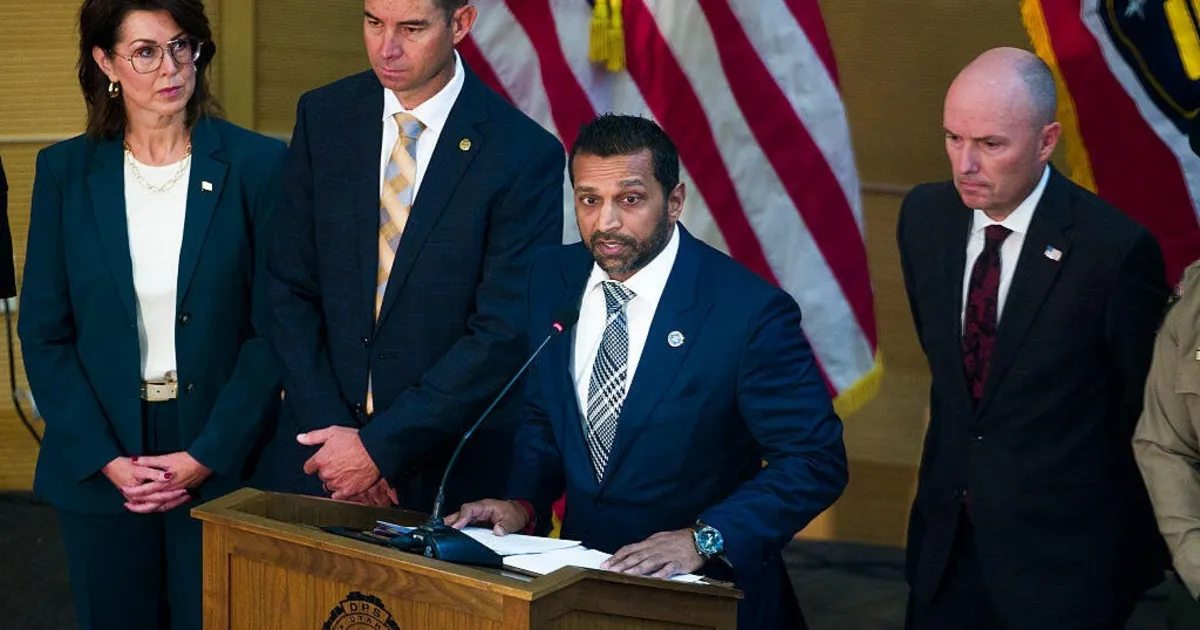
In a poignant statement following the tragic killing of Charlie Kirk last Friday, Utah Governor Spencer Cox expressed deep concerns regarding the detrimental effects of America's increasingly toxic online culture. He characterized social media as a "cancer on our society," urging individuals to disconnect from their devices, engage with nature, and foster positive relationships within their communities. This call to action highlights the pressing need for a cultural shift away from divisive online interactions.
Accompanying Governor Cox during his remarks was FBI Director Kash Patel, known for his heavy social media presence, which stands in stark contrast to his predecessors, Christopher Wray and James Comey. This juxtaposition of personalities did not go unnoticed among veterans of the bureau. One retired special agent remarked to CBS News, "You can be a social media influencer, or you can be FBI director, but you can't be both." Despite this criticism, Patel has embraced a more open and communicative approach, reshaping the agency's traditional communication style.
The clash of cultures within the FBI became particularly evident last week when Director Patel faced intense scrutiny over his management of a high-profile investigation. He frequently utilized social media to announce significant developments, sometimes prematurely. Within hours of the shooting, he informed his nearly 2 million followers on X about the suspect's custody, only to retract that statement later. At 6:21 p.m. ET, he tweeted, "The subject for the horrific shooting today that took the life of Charlie Kirk is now in custody," but had to follow up at 7:59 p.m. stating, "The subject in custody has been released after an interrogation by law enforcement."
In a subsequent Fox News interview, Patel defended his approach, stating, "I was being transparent with working with the public on our findings, as I had them." He acknowledged the potential for miscommunication but stood firm in his belief that sharing information was essential. "Could I have worded it a little better in the heat of the moment? Sure. But do I regret putting it out? Absolutely not," he asserted.
FBI Deputy Director Dan Bongino echoed Patel's sentiments, emphasizing the importance of transparency in today's media landscape. "The era of Cronkite and Jennings is over," he stated, advocating for a new approach that balances public communication with investigation integrity. This shift marks a significant departure from the FBI's historically reserved communication style, which often limited public disclosures, especially during active investigations.
Historically, figures like J. Edgar Hoover were known for their cautious approach to publicizing ongoing investigations. Yale historian Beverly Gage notes that Hoover operated within elaborate bureaucratic procedures, making the unfiltered social media presence of Patel a stark contrast. "It's very hard to imagine him being unfiltered enough to be on social media in quite this way," Gage remarked.
Patel's leadership style diverges from the traditional image of FBI directors, favoring bold fashion choices and a more dynamic presence. Described as a disruptor aiming to transform law enforcement priorities, Patel has garnered both praise and criticism for his approach. A former colleague noted his "bias for action," while others have raised concerns about his tendency to seek media attention.
Patel's social media activity has not been without controversy. Critics point to past incidents, such as allegations of leaking sensitive information during his time with the National Security Council, which raised questions about his judgment. Recent events have rekindled similar concerns, as experts warn against the risks of publicly sharing details that could potentially compromise ongoing investigations.
As the investigation into the Kirk shooting progresses, the initial fervor surrounding Patel's social media presence has somewhat diminished with the arrest of a suspect. However, Patel is expected to face scrutiny from the Senate Judiciary Committee in the coming days, where Democrats are preparing to challenge his communication practices. The FBI is currently grappling with a significant depletion of experienced personnel, further complicating its operations during this critical time.
As the FBI navigates these challenges, the agency's approach to communication and public engagement is under the microscope. While some view Patel's methods as a necessary evolution, others caution against prioritizing media engagement over the investigative process. Ultimately, the future of the FBI's leadership and its effectiveness in maintaining public trust will hinge on finding a balance between transparency and the integrity of ongoing investigations.